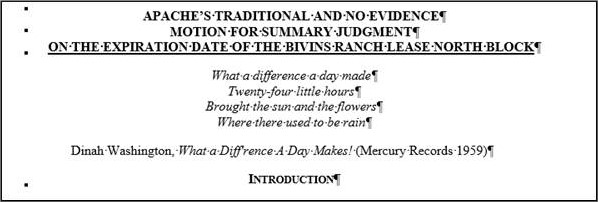On April 28, 2023, the Texas Supreme Court decided a huge win for our client, Apache Corp., capping off a fight that has been years in the making and a maze of litigation that led to a take-nothing judgment on the eve of trial and an ensuing appeal.
In 2014, the plaintiffs sued Apache for fraudulent inducement and breach of contract. Under their 2011 purchase-and-sale agreements, Apache paid $30 million for 75% of the sellers’ interest in 109 Texas Panhandle oil and gas leases. The PSAs provided that, under certain conditions, Apache would reassign its interests in the prospects to the sellers for free. Plaintiffs claimed that when Apache failed to reassign them the interests in the prospects for free and instead allowed the leases to expire, plaintiffs lost more than $1 billion in value.
In 2017, in the lead-up to trial, Apache filed MSJs on key contract construction issues, as well as a motion to exclude plaintiffs’ well-known damages expert. After lengthy hearings, the trial court granted Apache’s motions, construing the contracts in Apache’s favor and excluding plaintiffs’ expert. The trial court granted plaintiffs’ motion for continuance and allowed them to regroup.
The plaintiffs hired a new expert who alleged $200 million in damages. Their new theory centered on two key features of the Bivins Ranch lease, the transaction’s largest oil and gas lease: (1) its primary term, which was to last three years “from” the lease’s effective date of January 1, 2007, and (2) its continuous-drilling provision, through which the lease could be continued after the primary term expired by splitting the land into three equally sized blocks and drilling a certain amount each year. One of these blocks, the North Block, terminated after Apache did not fulfill that year’s drilling requirement for that block. Apache argued that the North Block expired on January 1, 2016, and plaintiffs argued that it expired a day earlier, on December 31, 2015. That single-day difference resulted in a $180 million delta in potential damages.
Apache moved for summary judgment on the new claims and challenged the expert testimony. The summary judgment motion opened with fitting lyrics from Dinah Washington in 1959:

Apache ultimately convinced the trial judge again to whittle down the major claims. Plaintiffs tried to take an early appeal, to no avail.
In 2019, and on the eve of another trial date, plaintiffs amended their expert disclosures to assert hundreds of millions of dollars in damages. Apache objected and, after contentious hearings, the trial judge ruled that none of plaintiffs’ damages experts were entitled to testify at trial. At that point, Apache moved for summary judgment based on the absence of damages, and the court granted the motion a few days later and entered a take-nothing judgment.
The 11th Court of Appeals reversed in part and affirmed in part. Apache filed a petition for review to the Texas Supreme Court, which reversed on the issues presented to it and remanded.
The Supreme Court made several rulings:
1. It held that the Bivins Ranch lease unambiguously imposed a January 1, 2010 expiration date for the primary term, which resulted in a January 1, 2016 expiration date for the North Block based on the lease’s continuous-drilling provision. The lease’s primary term measured time “from” January 1, triggering the default common-law rule that years measured in this way end on the anniversary of that date (i.e., January 1 rather than December 31). The Court noted that parties may freely depart from the default rule, but the text of the lease did not do so.
2. It rejected plaintiffs’ argument that the PSAs required Apache to offer back each seller all of Apache’s interest in the North Block, including the interests Apache had purchased from other sellers—and specifically the former interest of Gunn Oil Company, the only seller that was not a party to the lawsuit.
3. It considered the PSAs’ back-in trigger, which allowed each seller to “back in” for up to one-third of the interests it sold to Apache if the leases reached “Two Hundred Percent (200%) of Project Payout.” The Court agreed with Apache that it had to reach a 2:1 ratio of specified revenues versus specified expenses before sellers could exercise the back-in trigger.
4. The trial court had excluded the testimony of plaintiffs’ three experts on damages. The court of appeals affirmed the exclusion of two of them, and that ruling was not challenged on appeal. The Supreme Court held that the trial court properly excluded the sole remaining expert.
5. The Court remanded the case to the court of appeals to determine whether, without a damages expert, plaintiffs have sufficient evidence to support their damages claims against Apache.
Yetter Coleman helped achieve this result through close collaboration with its talented co-counsel – David Bernal and Andrew Friedberg of Apache, Stephen Crain, Warren Harris, and Jeff Oldham of Bracewell LLP, and Harper Estes of Lynch Chappell & Alsup. Yetter Coleman’s team includes Tim McConn, Reagan Simpson, Dori Kornfeld Goldman, Robert Woods, and Doug Griffith.
The case is Apache Corp. v. Apollo Exploration LLC et al., Case Number 21-0587 in the Supreme Court of Texas.